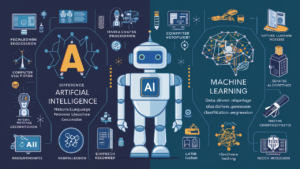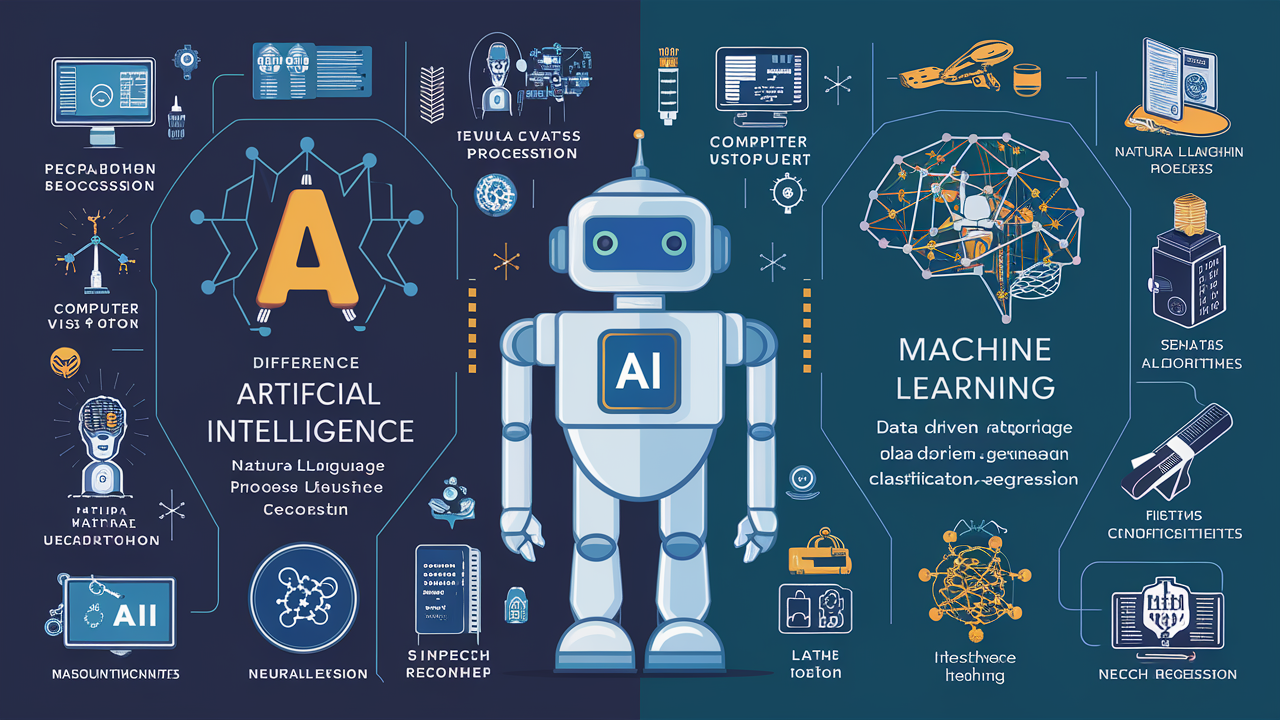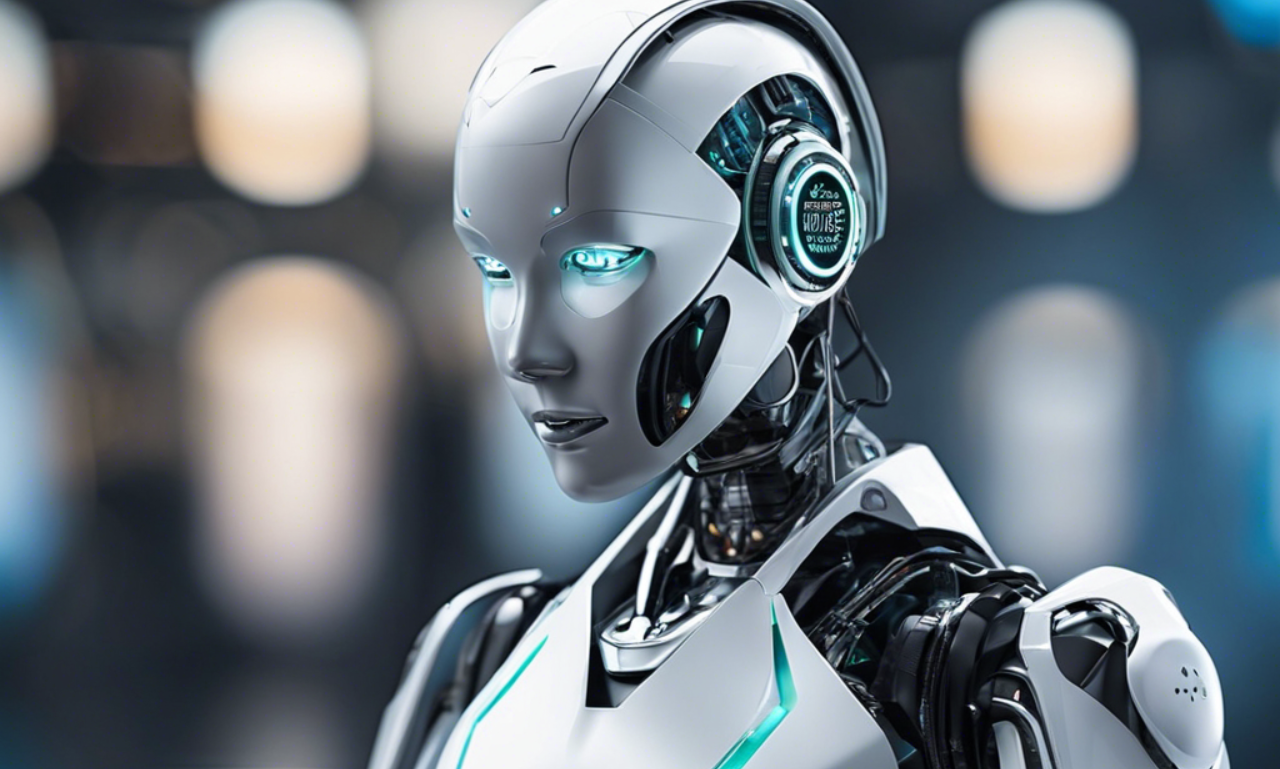Artificial intelligence (AI) has become pervasive in modern technology, but the advent of quantum computing heralds a new era of possibilities. With its unparalleled computational power, quantum computing stands to impact AI applications significantly.
Brief Explanation of Quantum Computing
Quantum computing exploits the principles of quantum mechanics, enabling qubits to exist in multiple states simultaneously. This offers immense computational power compared to classical computing.
Overview of AI Applications
AI encompasses various technologies, including machine learning, NLP, computer vision, and robotics, driving innovation across industries.
Thesis Statement
This article explores how quantum computing will revolutionize AI applications, examining synergies, challenges, real-world examples, and future implications.
Understanding Quantum Computing
Definition and Principles of Quantum Computing
Quantum computing harnesses quantum mechanical phenomena such as superposition and entanglement to perform computations. Unlike classical bits, qubits can represent multiple states simultaneously, enabling exponential parallelism.
Fundamental Components: Qubits, Superposition, Entanglement
Qubits are the fundamental units of quantum information capable of existing in superposition states. Superposition allows qubits to represent 0 and 1 simultaneously, exponentially increasing computational possibilities. Entanglement enables qubits to become correlated, even when physically separated, facilitating complex computations.
Current State of Quantum Computing Technology
While still in its nascent stages, quantum computing has made significant strides. Companies and research institutions are actively developing quantum hardware and algorithms, although practical scalability and error correction remain challenges.
Current Landscape of AI Applications
Machine Learning Algorithms
Machine learning algorithms enable computers to learn from data and make predictions or decisions without explicit programming. Supervised learning, unsupervised learning, and reinforcement learning are among the essential techniques driving advancements in AI.
Natural Language Processing (NLP)
NLP focuses on enabling computers to understand, interpret, and generate human language. Applications include machine translation, sentiment analysis, and chatbots, revolutionizing communication and information processing.
Computer Vision
Computer vision enables computers to interpret and understand visual information from the real world. Object detection, image classification, and facial recognition are some applications transforming industries such as healthcare, automotive, and retail.
Robotics
AI-powered robots can perform tasks ranging from manufacturing and logistics to healthcare and exploration—advances in robotics promise to enhance efficiency, safety, and autonomy across various domains.
Other AI Applications in Various Industries
AI applications extend beyond the domains above to encompass finance, healthcare, entertainment, and cybersecurity. From fraud detection and personalized medicine to recommendation systems and content creation, AI drives innovation and transformation.
Potential Synergies between Quantum Computing and AI
Speed and Efficiency Improvements
Quantum computing’s ability to perform parallel computations could significantly accelerate AI training and inference processes. Tasks that are currently computationally intensive, such as training deep neural networks on large datasets, could be completed much faster with quantum computing.
Enhanced Machine Learning Models
Quantum computing may enable the development of more sophisticated machine-learning models capable of handling complex patterns and relationships in data. Quantum algorithms could unlock new approaches to optimization, feature selection, and model training, leading to improved performance and accuracy.
Optimization of Complex Algorithms
Quantum computing offers the potential to solve optimization problems more efficiently than classical methods. This could benefit AI applications such as resource allocation, scheduling, and supply chain management, where finding the optimal solution amidst numerous variables is crucial.
Solving Previously Intractable Problems
Quantum computing may tackle computational challenges that are currently infeasible for classical computers. For instance, quantum algorithms could revolutionize drug discovery by simulating molecular interactions with unprecedented accuracy, leading to the development of novel therapeutics.
Advancements in Quantum-Enhanced AI Hardware
Integrating quantum computing with AI hardware could lead to developing quantum-enhanced processors designed explicitly for AI tasks. These hybrid systems could leverage the strengths of both quantum and classical computing architectures, paving the way for more powerful and efficient AI systems.
Challenges and Limitations
Technical Hurdles in Quantum Computing Development
Despite significant progress, Quantum computing faces numerous technical challenges, including qubit stability, coherence times, and error rates. Overcoming these challenges is essential for realising the full potential of quantum computing in AI applications.
Integration Challenges with Existing AI Frameworks
Integrating quantum computing with existing AI frameworks and infrastructure poses challenges due to differences in programming languages, algorithms, and hardware architectures. Developing compatible interfaces and tools for seamless integration is crucial for leveraging quantum computing in AI.
Scalability and Resource Constraints
Scalability remains a significant challenge in quantum computing, with current systems limited in the number of qubits and quantum gates they can reliably support. Scaling up quantum hardware and algorithms to handle real-world AI applications requires innovative approaches to overcome resource constraints.
Ethical Considerations and Societal Impacts
The convergence of quantum computing and AI raises ethical concerns regarding privacy, security, and societal implications. Addressing data privacy, algorithmic bias, and accountability is essential to ensure the responsible development and deployment of quantum-enhanced AI systems.
Challenges and Limitations
Technical Hurdles in Quantum Computing Development
Despite rapid progress, Quantum computing faces numerous technical challenges, including qubit coherence, error correction, and scalability. Overcoming these hurdles is essential for realizing the full potential of quantum computing in AI applications.
Integration Challenges with Existing AI Frameworks
Integrating quantum computing with existing AI frameworks and algorithms poses significant challenges. Adapting classical machine learning models to quantum computing architectures and optimizing quantum algorithms for specific AI tasks require innovative approaches and interdisciplinary collaboration.
Scalability and Resource Constraints
Scalability remains a significant hurdle for quantum computing, as current systems need help to handle large-scale computations required for many AI applications. Additionally, resource constraints such as limited qubit coherence times and high error rates pose significant barriers to practical implementation.
Ethical Considerations and Societal Impacts
The convergence of quantum computing and AI raises ethical concerns regarding privacy, security, and potential unintended consequences. Ensuring responsible development and deployment of quantum-enhanced AI systems requires careful consideration of moral principles and regulatory frameworks.
Future Outlook and Implications
Predictions for the Convergence of Quantum Computing and AI
Experts predict combining quantum computing and AI will lead to transformative advancements across various fields. Quantum-enhanced AI systems are expected to revolutionize healthcare, finance, transportation, and beyond, unlocking new capabilities and opportunities.
Potential Disruptions Across Industries
Integrating quantum computing with AI could disrupt traditional business models and processes, creating new market opportunities and reshaping competitive landscapes. Industries that embrace quantum-enhanced AI early stand to gain a competitive edge and drive innovation in their respective sectors.
Opportunities for Innovation and Research
The intersection of quantum computing and AI presents vast opportunities for innovation and research. Multidisciplinary collaboration, investment in quantum research and development, and exploration of novel applications will be critical to unlocking the full potential of this convergence.
Long-term Implications for the Future of AI
Looking ahead, quantum computing is poised to redefine the capabilities and limitations of AI systems. Quantum-enhanced AI algorithms, hardware, and applications will continue to evolve, pushing the boundaries of what is possible and opening new frontiers in artificial intelligence.
Conclusion
The fusion of quantum computing and artificial intelligence promises transformative advancements across industries. Despite challenges, interdisciplinary collaboration is driving progress. Ethical considerations are paramount. Together, quantum-enhanced AI stands to redefine what’s possible, shaping a future of innovation and societal impact. Embracing responsible development, we navigate a future where quantum computing empowers AI to address complex challenges and unlock unprecedented opportunities.

















![Its purpose is to seal the combustion gases within the cylinders and to avoid coolant or engine oil leaking into the cylinders.[1] Leaks in the head gasket can cause poor engine running and/or overheating.](https://techspectrum.org/wp-content/uploads/2024/01/Head-Gasket.png)


